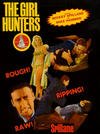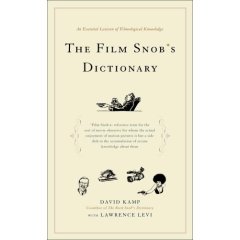
Director: Roy Rowland 1963
The roar of the .45 shook the room. Charlotte staggered back a step. Her eyes were a symphony of incredulity . . .
“How c-could you?” she gasped.
I only had a moment before talking to a corpse, but I got it in.
“It was easy,” I said.
I was about 12 when I read those words, the then-shocking climax to Mickey Spillane’s first Mike Hammer mystery, “I, the Jury.” I’d already been through the Hardy Boys, comic books, much of Ian Fleming. Spillane, of course, was a hugely best-selling writer by then, his heyday roughly between 1947 and 1952 when he cranked out the first batch of Hammers before going on hiatus for nearly ten years (he became a dedicated Jehovah’s Witness). The books were still in print in 1963, when I discovered them. And in print they remain: two omnibus collections of those early Hammers were published in 2001. Although appearing first in hardcover, Spillane was really a paperback phenomenon, his violent, slightly racy books blessed with those amazing paperback covers of the times.
Kids who liked to read 40 or so years ago were often attracted to pulp, which had a kind of second life thanks to cheap paperbacks--often reprinted magazine stuff from the 20s, 30s and 40s (particularly mysteries and sci-fi). The stories were fast-paced and highly readable, if also highly forgettable. There were exceptions: Hammett, Chandler, Ross MacDonald, John D. MacDonald, Ray Bradbury, Isaac Asimov and a slew of other memorable writers. The material had a quality of danger to it; 12-year-olds were introduced to dark, scary worlds. Today, pulp lives for kids through graphic novels, video games, and, yes, books. What’s Harry Potter if not a journey through an often dark and scary world?
A former comic-book writer, Spillane pumped up the amount of graphic violence and sex (mild by today’s standards, hot stuff for the 1950s) in his Hammer books—and was rewarded with lots of money and lots of critical damnation. He didn’t care. The books took two weeks to write.
Several Hammer books were made into mediocre movies, the exception being “Kiss Me, Deadly,” one of the best films of the 1950s and one that had the guts to depict Hammer as the sadistic vigilante he really was. If you’ve never seen “Kiss Me, Deadly,” rent it today. An amazing movie.
Another great Hammer-inspired movie moment is at the end of 1953’s“The Band Wagon,” my favorite movie musical. In it, Fred Astiare and Cyd Charisse dance the “Girl Hunt Ballet,” a wonderful parody of Spillane.
Mickey Spillane clearly has a sense of humor, for in 1962 he wrote a new Hammer mystery and called it “The Girl Hunters.” The following year, he played his own creation in the movie version. I may be wrong, but I can’t recall a writer ever playing his own series character. Imagine Conan Doyle as Sherlock Holmes, Chandler as Philip Marlowe, Fleming as James Bond, Tom Clancy as Jack Ryan.
Spillane’s not much of an actor, but the material isn’t too demanding. There are some nice exterior shots of New York (although most of the movie was shot in the UK). The femme- fatale is a sexy Shirley Eaton, soon to be fatally gilded in “Goldfinger.” The story moves along, and occasionally there are some real howlers (the newspaper columnist Hy Gardner, also playing himself, tells Spillane/Hammer that a certain politician “hated those Commie punks as much as we do.” Commie punks were often the targets of Hammer’s wrath).
Mickey Spillane turns 88 next month. Reportedly, he’s already written the final Mike Hammer book. Hammer himself should be the same age as Spillane, except Hammer resides in that Neverland of fictional characters who remain perpetually 39 or so. Long may he and Mickey Spillane live.






